The minimum wage has been a hot-button issue for decades. Workers fighting for a living wage and businesses balancing costs and fair compensation are often on opposite sides of the debate. We also have to consider the overall economic impact of wage changes. Let’s break down this complex issue by looking at how minimum wage increases affect workers, businesses, and inflation.
How Minimum Wage Hikes Affect Workers
The most immediate impact of raising the minimum wage is felt by low-wage workers. They see a direct boost in their earnings, leading to several potential benefits:
- Increased Purchasing Power: With more money in their pockets, minimum wage earners can afford more essential goods and services like groceries, housing, and healthcare. This increased spending can stimulate the economy.
- Reduced Poverty: Minimum wage increases can help lift families out of poverty by providing a more livable income. This can lead to long-term benefits like improved health and educational outcomes for children in those families.
- Improved Morale and Productivity: Earning a higher wage can make workers feel more valued and appreciated, which can lead to increased morale, motivation, and potentially, higher productivity.
However, it’s not always a simple win for workers. Some argue that minimum wage increases can lead to:
- Job Losses: Businesses might respond to higher labor costs by reducing their workforce, automating jobs, or cutting back on hiring, particularly affecting entry-level positions often held by younger or less experienced workers.
- Reduced Hours: Instead of laying off employees, some businesses may reduce the number of hours existing employees work to offset increased labor costs, potentially impacting workers’ overall earnings.
The actual impact on employment following a minimum wage increase is often debated and can vary depending on factors like the size of the increase, the local economy, and the specific industry.
The Business Perspective: Costs and Adjustments

While workers are directly affected by minimum wage increases, businesses are on the other side of the equation. They must manage the increased cost of labor, which can have a ripple effect throughout their operations:
- Higher Labor Costs: The most obvious impact is the increased cost of paying their employees. This is especially challenging for small businesses with tight margins.
- Pricing Adjustments: To offset higher labor costs, businesses may need to raise prices for their goods or services. This can lead to a decrease in sales if customers are unwilling to pay the higher prices.
- Innovation and Efficiency: Increased labor costs can incentivize businesses to find ways to become more efficient. This might involve investing in automation, streamlining processes, or finding other ways to reduce labor reliance.
Some businesses, however, might experience positive outcomes:
- Reduced Employee Turnover: Paying higher wages can lead to reduced employee turnover. This saves businesses money on hiring and training costs. It can also lead to a more experienced and productive workforce.
- Increased Consumer Spending: As mentioned earlier, higher wages can lead to increased consumer spending, potentially benefiting businesses in the local economy, especially those catering to lower-income consumers.
The overall impact on businesses is complex and depends on several factors, including the industry, the size of the business, and the local economic climate.
The Inflation Connection: A Delicate Balance

The relationship between minimum wage increases and inflation is one of the most debated aspects of this issue. Here’s a breakdown of the arguments:
- Cost-Push Inflation: Some argue that when businesses face higher labor costs due to a minimum wage hike, they pass those costs on to consumers through higher prices. This can contribute to inflation, especially if the increases are significant and occur rapidly.
- Demand-Pull Inflation: Others argue that minimum wage increases can stimulate the economy by increasing the purchasing power of low-wage workers. This increased demand for goods and services can lead to inflation if the supply cannot keep up.
- Limited Impact: There’s also the argument that the overall impact of minimum wage increases on inflation is minimal. This is because labor costs are only one factor affecting prices. Other factors, such as supply chain disruptions, raw material costs, and global economic conditions, play a significant role.
The reality is that the impact on inflation is difficult to isolate and measure definitively. The relationship between minimum wage and inflation is complex and influenced by a multitude of economic factors.
The Minimum Wage Debate: Finding Common Ground
The debate surrounding minimum wage increases is unlikely to be resolved anytime soon. However, understanding the different perspectives and potential impacts is crucial for having informed discussions and finding solutions that work for everyone. It’s important to consider:
- Regional Variations: The cost of living varies significantly across different regions. A federal minimum wage might not be appropriate for all areas, as what’s considered a living wage in one place might not be sufficient in another. Regional or local minimum wage adjustments could be more effective in addressing these disparities.
- Gradual Increases: Instead of implementing large, sudden minimum wage hikes, a phased-in approach with smaller, incremental increases spread out over time could give businesses time to adjust and mitigate potential negative impacts.
- Targeted Support: Along with minimum wage increases, policies aimed at supporting businesses, particularly small businesses, could help offset some of the increased costs. This might include tax breaks, grants, or other forms of financial assistance.
Finding solutions requires careful consideration of the needs of both workers and businesses, with the goal of creating a more equitable and prosperous society.
Conclusion
The minimum wage will likely remain a complex and debated issue. Understanding the multifaceted impacts on workers, businesses, and the overall economy is crucial for policymakers and citizens alike. While there are valid arguments on all sides of the debate, the goal should be to strive for a system that provides a fair and livable wage for all workers while fostering a healthy and thriving economy.
References:
- Minimum Wage: Investopedia provides a comprehensive definition and explanation of the minimum wage.
- The Effects of Minimum Wage Increases on Employment: This research paper from the National Bureau of Economic Research examines the impact of minimum wage increases on employment.
- Minimum Wage Laws: The U.S. Department of Labor provides information on federal and state minimum wage laws.
